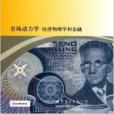內容簡介
《市場動力學:經濟物理學和金融》初版2004年,2007年重印發行,深受廣大讀者的好評。大量有關經濟和金融的教程幾乎都沒有使Adam Simith的穩定性“看不見得手”觀點得到實際市場數據的證實。現代經典平衡態模型大多基於美國國債,世界銀行,IMF以及歐盟,他們將該理論作為實際操作的信條,使得平衡態模型提供經濟全球化中市場不規則運動過程中達到預期目標的理論支持。《市場動力學(經濟物理學和金融)》則是以市場運行實際經驗為依據,並非假設市場應該如何運行,引入了基於實踐的金融市場動力學,詳細講述了波動和定價期權,闡釋了金融市場的不穩定性。
圖書目錄
Preface
1 The moving target
1.1 Invariance principles and laws of nature
1.2 Humanly invented law can always be violated
1.3 Where are we headed?
2 Neo-classical economic theory
2.1 Why study "optimizing behavior"?
2.2 Dissecting neo-classical.economic theory (microeconomics)
2.3 The myth of equilibrium via perfect information
2.4 How many green jackets does a consumer want?
2.5 Macroeconomic lawlessness
2.6 When utility doesn't exist
2.7 Global perspectives in economics
2.8 Local perspectives in physics
3 Probability and stochastic processes
3.1 Elementary rules of probability theory
3.2 The empirical distribution
3.3 Some properties of probability distributions
3.4 Some theoretical distributions
3.5 Lawsof large numbers
3.6 Stochastic processes
3.7 Correlations and stationary processes
4 Scaling the ivory tower of finance
4.1 Prolog
4.2 Horse trading by a fancy name
4.3 Liquidity, and several shaky ideas of "true value"
4.4 The Gambler's Ruin
4.5 The Modigliani-Miller argument
4.6 From Gaussian returns to fat tails
4.7 The best tractable approximation to liquid market dynamics
4.8 "Temporary price equilibria" and other wrong ideas of "equilibrium" in economics and finance
4.9 Searching for Adam Smith's Invisible Hand
4.10 Black's "equilibrium": dreams of "springs" in the market
4.11 Macroeconomics: lawless phenomena?
4.12 No universal scaling exponents either!
4.13 Fluctuations, fat tails, and diversification
5 Standard betting procedures in portfolio selection theory
5.1 Introduction
5.2 Risk andreturn
5.3 Diversification and correlations
5.4 The CAPM portfolio selection strategy
5.5 The efficient market hypothesis
5.6 Hedging with options
5.7 Stock shares as options on a firm's assets
5.8 The Black-Scholes model
5.9 The CAPM option pricing strategy
5.10 Backward-time diffusion: solving the Black-Scholes pde
5.11 We can learn from Enron
6 Dynamics of financial markets, volatility, and option pricing
6.1 An empirical model of option pricing
6.2 Dynamics and volatility of returns
6.3 Option pricing via stretched exponentials
Appendix A.The first Kolmogorov equation
7 Thermodynamic analogies vs instability of markets
7.1 Liquidity and approximately reversible trading
7.2 Replicating self-financing hedges
7.3 Why thermodynamic analogies fail
7.4 Entropy and instability of financial markets
7.5 The challenge: to find at least one stable market
Appendix B.Stationary vs nonstationary random forces
8 Scaling, correlations, and cascades in finance and turbulence
8.1 Fractal vs self-affine scaling
8.2 Persistence and antipersistence
8.3 Martingales and the efficient market hypothesis
8.4 Energy dissipation in fluid turbulence
8.5 Multiaffine scaling in turbulence models
8.6 Levy distributions
8.7 Recent analyses of financial data
Appendix C.Continuous time Markov processes What is complexity?
9.1 Patterns hidden in statistics
9.2 Computable numbers and functions
9.3 Algorithmic complexity
9.4 Automata
9.5 Chaos vs randomness vs complexity
9.6 Complexity at the border of chaos
9.7 Replication and mutation
9.8 Why not econobiology?
9.9 Note added April 8, 2003
References
Index
作者簡介
作者:(美國)麥考利(Joseph.L.McCauley)

